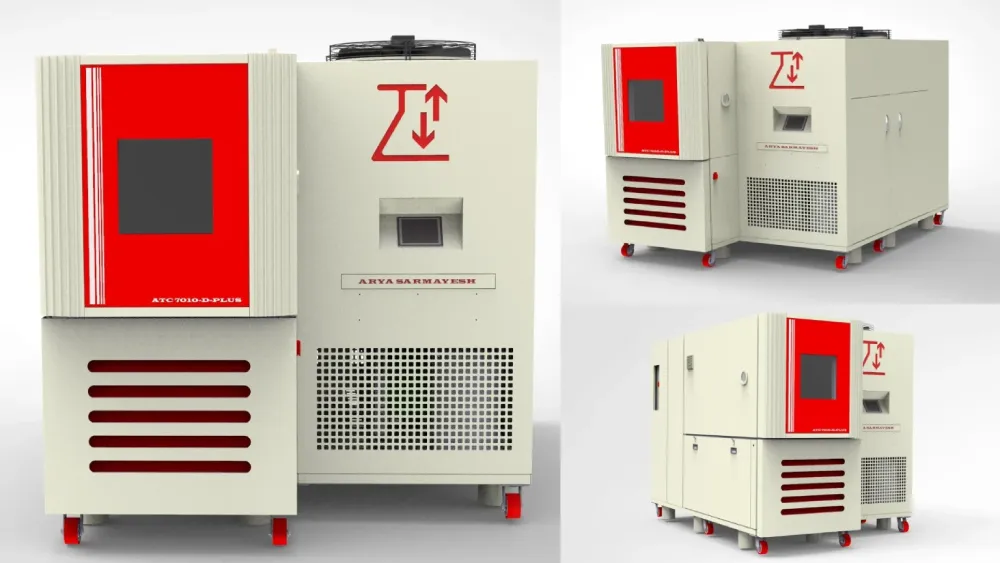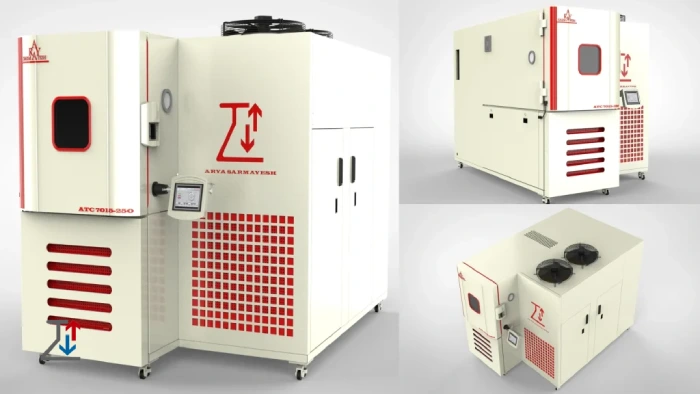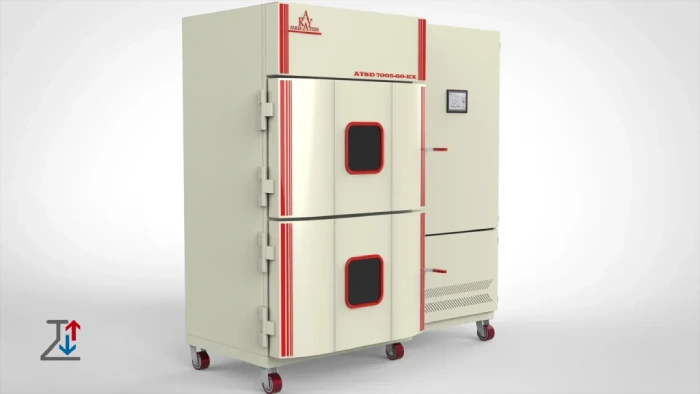
In the modern world of materials testing and quality assurance, thermal chambers play a crucial role in assessing the durability and reliability of products subjected to extreme temperature fluctuations. Industries such as aerospace, automotive, electronics, and manufacturing rely on thermal shock testing to simulate harsh environmental conditions. To ensure consistency and accuracy, these industries must follow established testing standards. This article explores the key thermal shock testing standards, their global variations, and the importance of certification and compliance.
What is Thermal Shock Testing?
Thermal Shock Testing Standards

Thermal shock testing is the process of subjecting materials or components to rapid temperature changes to assess their ability to withstand the stresses caused by thermal expansion and contraction. To ensure that thermal shock testing is consistent and accurate across industries and borders, several standard organizations have developed detailed guidelines.
1. ASTM Standards
The American Society for Testing and Materials (ASTM) is one of the most influential bodies in establishing global standards. ASTM E1952 is one of the key standards for thermal shock testing of ceramic materials, while ASTM E2281 is widely used for testing the durability of electrical components under extreme temperature fluctuations. These standards provide clear guidelines on test conditions, specimen preparation, and evaluation methods.
2. ISO Standards
The International Organization for Standardization (ISO) plays a significant role in establishing universal standards. ISO 16750-4 is often applied in the automotive industry for thermal shock testing of electronic components. Similarly, ISO 18431-2 outlines the procedures for measuring the effects of thermal shock on materials and products in various industries. These ISO standards promote consistency in testing, which is essential for global trade and product development.
3. MIL-STD and IEC Standards
For military and electronic components, the MIL-STD-810 and IEC 60068 series are commonly referenced. MIL-STD-810 is a military standard for environmental testing, including thermal shock, and is crucial for ensuring the reliability of military equipment under extreme conditions. IEC 60068, widely used in electronics, provides specifications for environmental testing, including thermal cycling and shock.
Global Standards for Thermal Shock Testing in Different Industries
While the core principles of thermal shock testing remain consistent, the specific requirements and standards vary depending on the industry. Below are a few key sectors where thermal shock testing plays a pivotal role:
1. Aerospace and Defense
In aerospace, components must endure rapid temperature changes during takeoff, flight, and re-entry. Standards such as ASTM F-1140 and MIL-STD-810C are essential for validating the performance of materials used in aircraft and space missions. Aerospace products are subject to the highest levels of scrutiny, as failure in extreme temperatures could jeopardize human lives.
2. Automotive
Automotive manufacturers use thermal shock testing to evaluate the durability of parts such as sensors, wiring, and components exposed to extreme environmental conditions (high heat in engines or freezing temperatures in cold weather). Automotive thermal shock testing typically follows ISO 16750-4 or ASTM E2281.
3. Electronics
In the electronics industry, thermal shock testing is crucial for evaluating the reliability of printed circuit boards (PCBs), semiconductor devices, and other electronic components. Standards such as IPC-9701 and IEC 60068-2-14 specify thermal shock testing methods and criteria for electronics to ensure that devices will perform reliably under fluctuating temperatures.
4. Consumer Goods
For consumer products, particularly those that undergo frequent exposure to varying temperatures (e.g., mobile phones, home appliances), thermal shock testing standards like IEC 60068-2-14 and ISO 16750-4 are often employed. These standards ensure that products maintain functionality and integrity through seasonal temperature variations or rapid heating and cooling during use.
Certification and Compliance in Thermal Shock Testing

Achieving certification and compliance with thermal shock testing standards is vital for product quality and market acceptance. Certification demonstrates that products have been tested under controlled, internationally recognized conditions and are fit for use in demanding environments.
1. Importance of Compliance
Compliance with thermal shock testing standards ensures that products meet the necessary durability requirements, minimizing the risk of failure in the field. Non-compliance can lead to product recalls, costly warranty claims, and damage to a company’s reputation.
2. Certification Bodies
Various organizations provide certification services for thermal shock testing. For example, Underwriters Laboratories (UL) offers testing and certification for electronics and electrical products, ensuring they comply with recognized international standards. Similarly, SGS and TÜV Rheinland offer comprehensive testing and certification for a range of industries, ensuring that thermal shock tests are conducted according to the highest industry standards.
3. Role of Testing Laboratories
Independent testing laboratories play an essential role in performing thermal shock tests. These labs are accredited by national and international bodies, ensuring their testing processes meet the criteria set by ASTM, ISO, or other relevant standards. Working with accredited labs ensures that manufacturers receive accurate and reliable test results.
Aryasarmayesh: Leading the Way in Thermal Chamber Production
Aryasarmayesh is a renowned company in the field of thermal testing solutions, specializing in the production of state-of-the-art thermal chambers. Their innovative products are designed to meet the most demanding thermal shock testing standards and help companies across industries ensure product reliability under extreme temperature variations.
Why Choose Aryasarmayesh?
- Advanced Technology: Aryasarmayesh thermal chambers are built with cutting-edge technology to provide precise and rapid temperature changes, ensuring that your products undergo rigorous testing in line with international standards such as ASTM, ISO, and MIL-STD.
- Customization: Aryasarmayesh understands that different industries have unique testing needs. Their thermal chambers can be customized to meet the specific requirements of your products, whether you’re testing electronics, automotive parts, or aerospace components.
- Global Reach: With a commitment to quality and customer satisfaction, Aryasarmayesh has earned a reputation as a trusted supplier to industries worldwide. Their thermal chambers are used by companies in over 30 countries, helping businesses comply with the most stringent thermal shock testing standards.
- Reliability and Durability: Designed to withstand continuous use, Aryasarmayesh thermal chambers are built for long-term performance. Their robust design ensures consistent and accurate results, essential for critical testing in industries such as aerospace, automotive, and electronics.
Conclusion
Thermal shock testing is an essential process for ensuring the reliability of products subjected to extreme temperature fluctuations. By adhering to international standards such as ASTM, ISO, and MIL-STD, industries can guarantee that their products will perform as expected in real-world conditions. Certification and compliance are essential for maintaining product quality and safety, and thermal chambers play a crucial role in this testing process.
Aryasarmayesh stands out as a leader in thermal chamber production, offering high-quality solutions that meet the rigorous standards set by international organizations. Whether you’re in aerospace, automotive, electronics, or another industry, Aryasarmayesh provides the tools needed to carry out precise and reliable thermal shock testing.
For more information about Aryasarmayesh’s thermal chambers, visit their website or contact their sales team for personalized consultation.
Related articles in Aryasarmayesh: